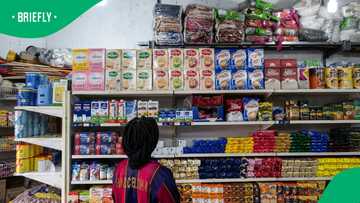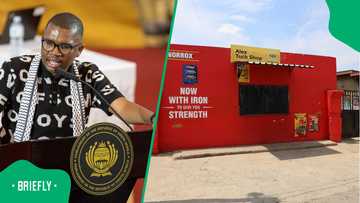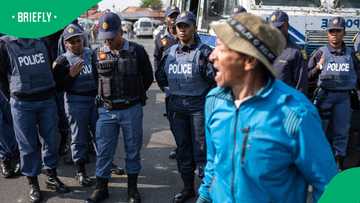Survey Reveals That South Africans’ Distrust of Immigrants Could Lead to Instability
- A survey showed that South Africans without work have a growing distrust of foreign nationals in the country
- Employed South Africans also expressed a deep distrust of African immigrants and said that the instability that may arise from the distrust may affect the economy
- South Africans weighed in: some disagreed with the statistics and others agreed, expressing concern about the country's future
- Operation Dudula spoke to Briefly News about the survey and shared their views on what the cause of growing distrust of African immigrants is
Tebogo Mokwena, a dedicated Briefly News current affairs journalist, contributed coverage of international and local social issues, including health, corruption, education, unemployment, labour, service delivery protests, and immigration in South Africa, during his seven years at Daily Sun and Vutivi Business News.
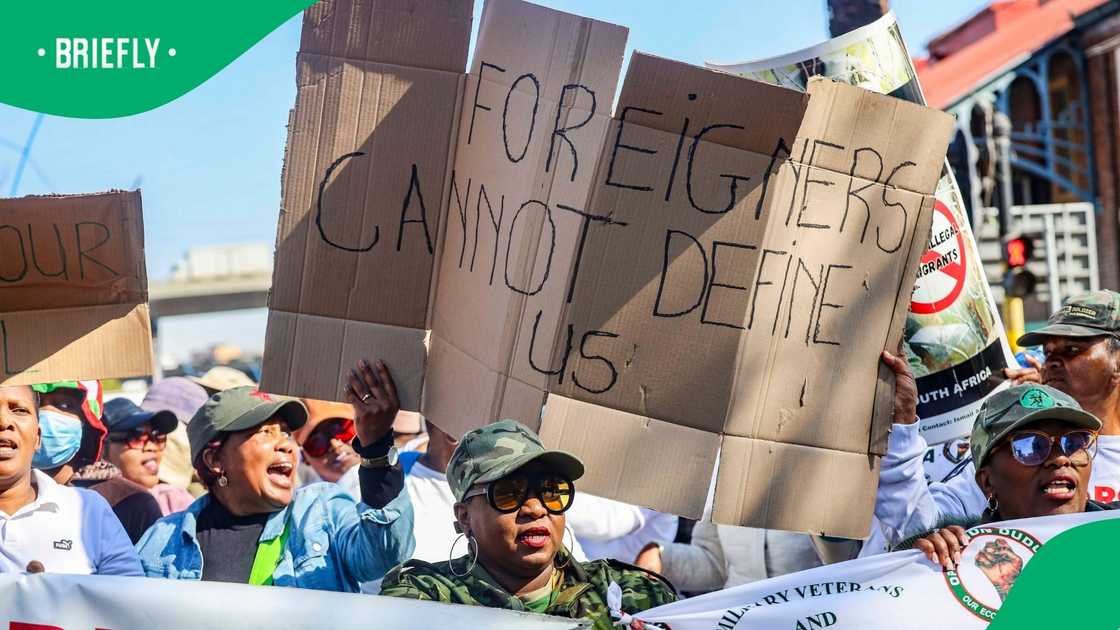
Source: Getty Images
JOHANNESBURG, GAUTENG — The Inclusive Society Institute has warned that growing distrust of African foreign nationals could fuel economic instability.
According to IOL, the Institute surveyed unemployed and employed South Africans to gauge their attitudes towards African immigrants living in the country. The survey revealed that relations between African immigrants and South Africans have soured.
What did the survey reveal?
The GovDem Survey discovered that 77.3% of the unemployed respondents distrusted immigrants from Africa. About 70% of the employed respondents also distrusted African immigrants. The Institute's CEO, Daryl Swanepoel, said that joblessness may be fuelling concerns about competition in the labour market.
Swanepoel added that the perception that foreign nationals have overwhelmed government services at South Africans' expense is another factor influencing South Africans' distrust of foreign nationals.
Swanepoel also pointed out that groups like Operation Dudula and March and March, which have been taking action against foreign nationals, heighten tensions between the two groups in communities. However, he said, their activities are not always motivated by factual information. Swanepoel called on the government to tackle illegal immigration, and added that the instability could affect the country's economy and foreign investment.
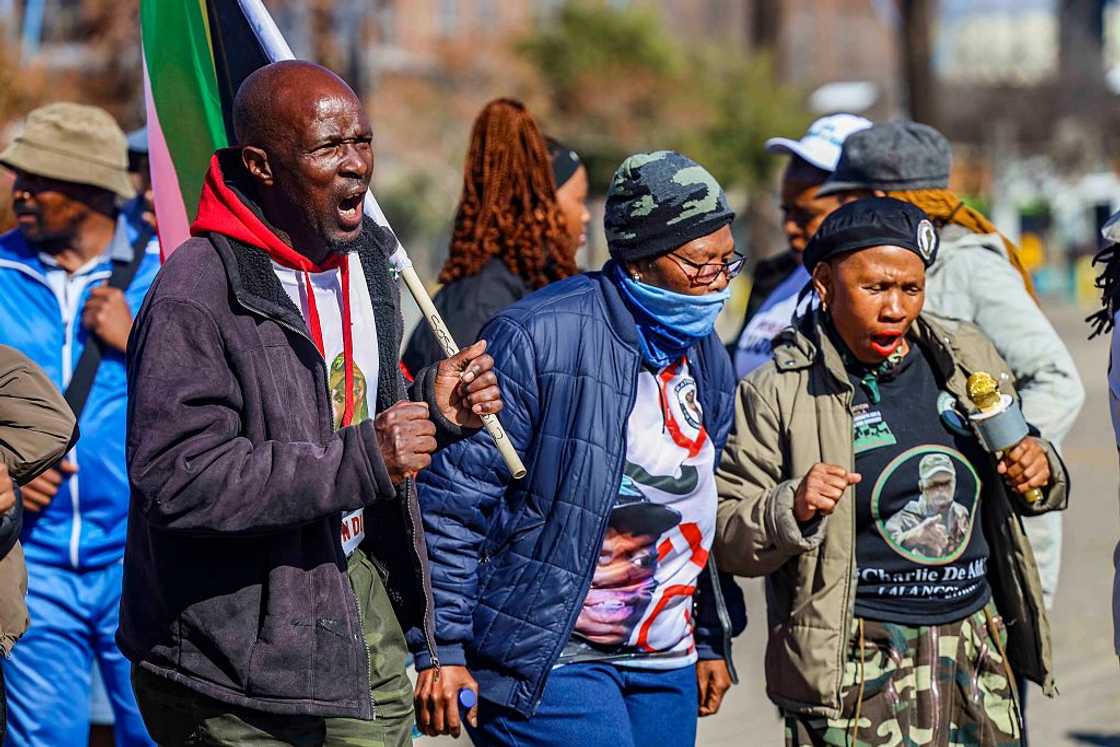
Source: Getty Images
Growing trust manifests in violence
Swanepoel remarked that the distrust has already manifested in violent clashes and incidents. He pointed out that foreign shop owners, e-hailing drivers, and community members have been attacked. Most recently, Operation Dudula embarked on a campaign to prevent foreign nationals from accessing public healthcare facilities. Dudula's president, Zandile Dabula, said that the organization has uncovered criminal activities involving foreign nationals.
Two members of the organisation were arrested on 7 August after they forcefully removed a pregnant foreign national from the Lilian Ngoyi Clinic in Diepkloof, Johannesburg. The members were released on a warning.
Operation Dudula speaks to Briefly News
Speaking to Briefly News, Operation Dudula shared their views on the survey. The organisation stated that distrust of African immigrants stems largely from the lived realities of ordinary sentiments and claimed Dudula did not manufacture these sentiments.
"Communities experience joblessness, crime, and strained public services daily. When citizens see unregulated businesses, overstretched clinics, and limited housing, they naturally question whether government's immigration management is effective," Operation Dudula said.
Migration expert speaks to Briefly News
Speaking to Briefly News and commenting on the matter, migration expert Professor Loren Landau from Wits University said that material conditions, including poverty, economic insecurity, and a sense of being unfairly stuck, make people prone to frustration and anger.
"Many South Africans with good jobs still struggle to overcome extraordinary levels of personal debt and meet demands from those close to them. However, there are many places in the world where the anxieties associated with povery and inequality do not translate into anti-immigrant sentiments per se. So while economic hardship is a factor, it is history, narrative framing, and street level organising that leads to scape goating and distrust," he said.
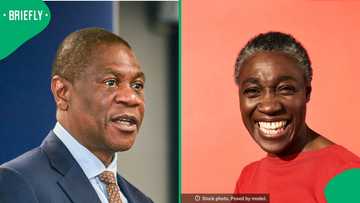
Read also
Paul Mashatile rejects jobs-for-pals claims, SA amused as he says ANC deployments are merit-based
What did South Africans say?
South Africans commenting on Facebook debated the findings.
Those who agreed
Carl Taylor said:
"I can see a civil war brewing."
Takawira Mazando said:
"They are looking for scapegoats."
Harry Kanyama said:
"The number will rise after the closure of Goodyear, the job losses at Ford, the job losses at Arcelor Mittal, the biting trade tariffs from the USA, and the rise in the cost of living."
Those who disagreed
Wamga Godongwana said:
"The sad part is that the government knows where these illegal immigrants stay."
Jonathan Vuyani Malaza said:
"I'm working and I don't trust them."
Colin Craig Broadfoot said:
"Does this include illegal immigrants? Do a complete survey, please."
Operation Dudula defends its operations
In a related article, Briefly News reported that Operation Dudula defended its operations. This was after two members were arrested for removing a pregnant woman from a clinic in Soweto.
Operation Dudula spoke to Briefly News after the incident. The organisation insisted that it conducted lawful activities.
Johannesburg named Africa’s wealthiest city, with Sandton leading the way
Meanwhile, South Africans are seeing Johannesburg recognised as the continent’s wealthiest city, with its financial power centred in Sandton and a growing influence across the region.
Johannesburg has once again been recognised as Africa’s wealthiest city, according to the Africa Wealth Report 2025. Despite challenging economic times, the city’s financial strength remains evident, with a significant portion of wealth concentrated in the Sandton area, often called the richest square mile in Africa. The report highlights that Johannesburg continues to lead the continent in overall wealth, attracting attention from investors, entrepreneurs, and financial experts alike.
The latest figures underline the diverse economic landscapes across South African cities, with Johannesburg serving as a hub for business, finance, and luxury living.
PAY ATTENTION: Follow Briefly News on Twitter and never miss the hottest topics! Find us at @brieflyza!
Source: Briefly News

